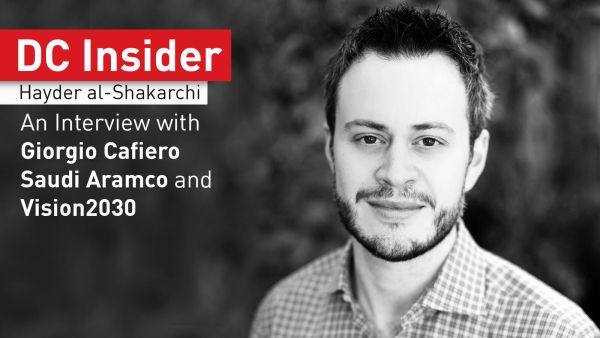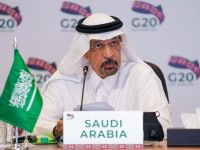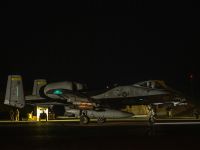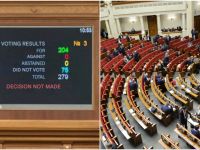After over a year of deliberation, Riyadh has announced the Initial Public Offering (IPO) of what might be the world's most valuable company: Saudi Aramco Oil. At the heart of the valuation are domestic plans for Saudi to diversify it's economy, worries over the reliability and duration of the relationship with the U.S., and the power and reputation of the Crown Prince, Mohammed Bin Salman.
For context and an overview of the issues, DC Insider sat down with Giorgio Cafiero, CEO of Gulf State Analytics.
{"preview_thumbnail":"https://cdn.flowplayer.com/6684a05f-6468-4ecd-87d5-a748773282a3/i/v-i-e…","video_id":"eba47520-516f-4687-b070-5007d1f0705d","player_id":"8ca46225-42a2-4245-9c20-7850ae937431","provider":"flowplayer","video":"DC Insider"}
What role has the attack on Saudi Aramco played in terms of KSA’s Vision 2030?
“The attacks against Aramco facilities two months ago underscored the extent to which Saudi Arabia’s adversaries in the region have the potential to completely undermine Vision 2030 in ways that are extremely efficient. The drone and missile attacks on the oil facilities in September did a lot to expose Saudi Arabia’s vulnerabilities to actors in the Middle East that have different reasons for seeking to undermine Saudi at this juncture.”
The attacks against Aramco facilities two months ago underscored the extent to which Saudi Arabia’s adversaries in the region have the potential to completely undermine Vision 2030 in ways that are extremely efficient
How has this attack affected U.S.-Saudi relations, especially since the oil tycoon company is essentially the crux of their tight-knit relationship?
“The lack of response from the Trump administration left Saudi Arabia and others in the GCC less confident in the United States serving as their security guarantor. A lesson, which Saudi Arabia and others in the Arab region were able to take away, was that for the billions of dollars that the Saudis have spent on U.S.-produced weaponry, the Saudis were still not able to prevent this attack - which was carried out with much precision and struck the engine of the Saudi economy. I think that as a consequence of Riyadh and Abu Dhabi coming to the conclusion that Trump’s administration will not have the U.S. fight a war against Iran on behalf of Saudi Arabia has caused these capitals to reassess their position in relation to Iran.”
I think that as a consequence of Riyadh and Abu Dhabi coming to the conclusion that Trump’s administration will not have the U.S. fight a war against Iran on behalf of Saudi Arabia
Could this be the beginning of the end of the U.S.-Saudi partnership?
“Some of the diplomatic overtures which have been coming from some GCC states in recent weeks, even if modest or subtle, would suggest that Arab gulf countries are moving towards the realization that the U.S., as a power located 10,000 miles away, is not a country that they should be so dependent on in terms of dealing with the Iranian threat.
There seems to be a shift towards the view that Abu Dhabi and Riyadh need to begin engaging the Iranians without remaining so dependent on the Trump administration. Another factor here has to do with the fact that politics in the U.S. are very messy right now and open questions about whether Trump will secure a second term.
Trump is a polarizing figure and how such close relations with this president could create issues in terms of the Gulf states’ relations with the Pentagon, Congress, and other institutions in the U.S. government
Regardless of Trump’s political future, these states in the Gulf seem to now be less comfortable betting the farm on Trump as a president because this has overlooked how Trump is a polarizing figure and how such close relations with this president could create issues in terms of the Gulf states’ relations with the Pentagon, Congress, and other institutions in the U.S. government.”
Secrecy is key for Saudi Arabia, but why is KSA so adamant on not disclosing intel regarding Saudi Aramco's funding?
“For many years, the Saudis have considered this information to be important for the kingdom’s national security. There would obviously be concerns about Saudi Arabia perhaps not having as much oil as the Saudis would like the rest of the world to think. Moreover, greater transparency within Aramco would expose much about the Al Saud family’s finances and spending which could prove problematic from the royal family’s perspective.
Moreover, greater transparency within Aramco would expose much about the Al Saud family’s finances and spending which could prove problematic from the royal family’s perspective.
It is important to remember that Saudi Aramco is a company unlike other companies in the world. It is the world’s most profitable one and the Saudis have long been extremely opaque when it comes to many of the details and numbers of Saudi Aramco. The IPO is creating a challenge for the leadership in Saudi Arabia because now there’s more pressure on the Saudi oil company to open its books. This is an important point because going to the New York or London stock exchanges would require a lot more transparency than going to Japan as the venue for this overseas IPO and because of these transparency-related issues, there is a good chance that the Saudis will see the Tokyo Stock Exchange as very appealing for the overseas IPO.”
KSA has reached out to Prince Al-Waleed bin Talal for financial assistance, only two years after MbS incarcerated bin Talal on corruption charges. Why would bin Talal invest following the Ritz-Carlton incident?
“In Saudi Arabia right now, there is a growing tide of nationalism. MbS has leveraged the nationalism card in many ways to push Vision 2030 forward. Saudi Arabia’s official narrative will be that supporting the crown prince and Vision 2030 is an obligation for all in Saudi Arabia who want to see the kingdom succeed.
Saudi Arabia’s official narrative will be that supporting the crown prince and Vision 2030 is an obligation for all in Saudi Arabia who want to see the kingdom succeed
And so there is this official narrative that this diversification agenda needs supporting from as many Saudis as possible and I think that the prince, who is a very high-profile figure who had his problems in 2017, will want to be seen as supportive of MbS.”
It’s beginning to seem as though KSA is leaning further to the East than to the West. What role has and/or will China play in Vision 2030?
“I think that the significant role played by China in Vision 2030, in the grander agenda, speaks volumes about the extent to which Saudi Arabia has made a geo-economic shift eastward. The Saudis are so much more closely tied to China and other Asian powers when it comes to trade, investment, energy, and many other domains than they were twenty or thirty years ago. It makes sense that China and Saudi Arabia are planning for a much stronger relationship in the future. China sees Vision 2030 as complimenting its Belt and Road Initiative.
It makes sense that China and Saudi Arabia are planning for a much stronger relationship in the future. China sees Vision 2030 as complimenting its Belt and Road Initiative.
So China wants to see Vision 2030 and BRI complement each other. Moreover, the Chinese have vested interests in stability in the oil-rich Arabian Peninsula and Persian Gulf. This has to do with many factors, but by far the most important one being China’s addiction to energy resources from this region. Therefore, the Chinese want to support Vision 2030 because that will be necessary for long-term stability in the kingdom and so because of all these factors, we’re seeing China playing an important role in the kingdom’s transformation.”
The views expressed in this article do not necessarily reflect those of Al Bawaba News.







